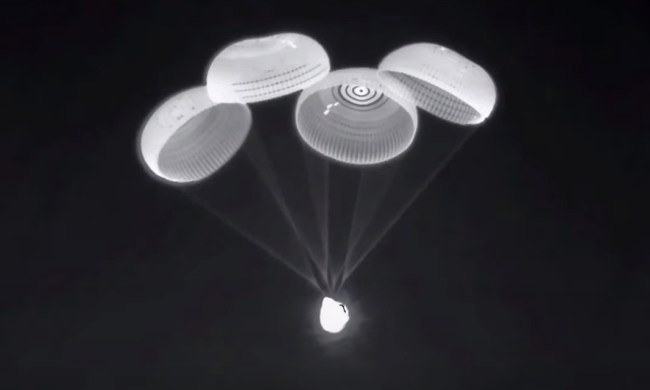SpaceX successfully launched its Crew-8 members to the International Space Station (ISS) on Sunday night.
The Falcon 9 rocket carrying NASA astronauts Michael Barratt, Matthew Dominick, and Jeanette Epps, along with Roscosmos cosmonaut Alexander Grebenkin, blasted away from a Cape Canaveral launchpad in Florida just before 11 p.m. ET.
Sunday night’s launch was at risk of being scrubbed about 30 minutes out when it emerged that a small crack had been found on a seal on the Crew Dragon’s hatch. Engineers analyzed the crack before confirming that the team was happy to proceed with the launch.
“We are confident that we understand the issue and we can fully still fly the whole mission safely,” a team member said 10 minutes from launch. “We’re comfortable proceeding because the condition is bounded by existing analysis … Additionally, we expect the gap created by this crack in the seal to close as the material will swell with reentry heating, and finally, it’s on the lower heating side of the vehicle during reentry. The engineering team here is comfortable proceeding.”
SpaceX shared key moments of the early stages of the mission on social media, including the launch.
Liftoff of Crew-8! pic.twitter.com/wqTFNNDGR9
— SpaceX (@SpaceX) March 4, 2024
About eight minutes after launch, the first stage of the Falcon 9 booster landed close to the launch site at the Kennedy Space Center.
Falcon 9’s first stage booster has landed at Landing Zone 1 pic.twitter.com/QIZYNFgLLA
— SpaceX (@SpaceX) March 4, 2024
SpaceX also shared footage of the Crew Dragon separating from the Falcon 9’s second stage.
Dragon has separated from Falcon 9’s second stage and is on its way to the @Space_Station pic.twitter.com/AczzWvJKat
— SpaceX (@SpaceX) March 4, 2024
Speaking from the capsule after reaching orbit, Barrett, on his third space mission, said the launch was “kind of like a rollercoaster ride with a bunch of really excited teenagers.”
The Crew Dragon spacecraft is scheduled to dock with the ISS at 3 a.m. ET on Tuesday, March 5. SpaceX has a launched a website that lets you track the crew on its journey to the space station in real time.


